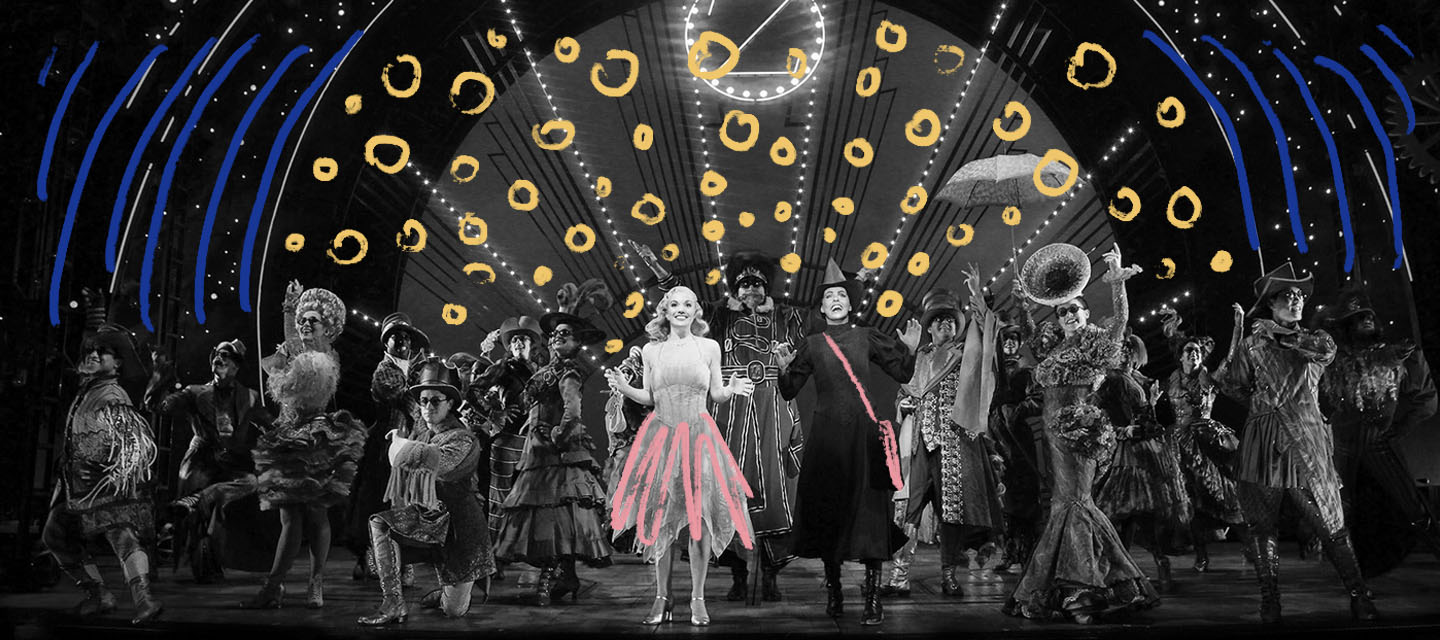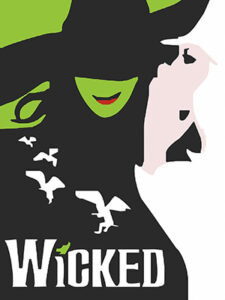

Wicked
Opening Night: October 30, 2003
Theater: Gershwin Theatre
Website: wickedthemusical.com
Wicked takes a revisionist look at an American icon of evil and discovers how the young Elphaba, a passionate, committed young woman from Oz, becomes the Wicked Witch of the West. Her character is contrasted with that of her school roommate Glinda, who grows up to be the Good Witch.
BUY TICKETSREAD THE REVIEWS:
November 10, 2003
I’m a peculiar blend of the Pragmatist and the Romanticist and the crocodile. The Monster,” Tennessee Williams said. After the triumph in 1947 of “A Streetcar Named Desire,” he dedicated himself to his own greatness; the result was a moral and emotional attrition, which his plays increasingly registered. “I grow less integrated,” Williams wrote to a friend in 1950. “I am more alone and more lost than I ever was, and know hundreds more people!” By the time he began to write his masterpiece of the mid-fifties, “Cat on a Hot Tin Roof,” now in a superb revival at the Music Box, his tally of losses included three consecutive critical failures—“Summer and Smoke,” “The Rose Tattoo,” and “Camino Real.” Williams’s embattled situation—his compulsion to lay claim to his literary legacy at all costs—found a fierce and funny reflection in the struggle of Maggie, “Cat on a Hot Tin Roof” ’s heroine, to seize her own sexual and financial inheritance. “My hat is still in the ring, and I am determined to win!” Maggie says. For her, endurance is everything. “Life has got to be allowed to continue even after the dream of life is—all—over,” she says. But her appetite for vindictive triumph has turned her, like Williams, into a monster—a fact that she recognizes but can’t change. To her aptly named husband, Brick, a frozen and aloof alcoholic, Maggie admits, “I’ve gone through this—hideous!—transformation, become—hard! Frantic!—cruel!!” In Maggie, “Cat on a Hot Tin Roof” offers us the first glimpse of the tortured and torturous inner terrain into which Williams had wandered (he called it “the beanstalk country”): a hell of his own making.
READ THE REVIEWOctober 30, 2003
Remember the last time an original Broadway musical made you laugh, cry and think — in the right places, and for the right reasons?
READ THE REVIEWOctober 30, 2003
It’s not easy being green. Or blonde, for that matter. Those are just two of the many lessons to be learned from this big, murky new Broadway musical. But maybe the most salient pointer is that it ain’t easy being a Broadway musical. A strenuous effort to be all things to all people tends to weigh down this lumbering, overstuffed $14 million production. “Wicked” is stridently earnest one minute, self-mocking the next; a fantastical allegory about the perils of fascism in one scene, a Nickelodeon special about the importance of inner beauty in another. There are flying monkeys, flying witches and flying scenery, but the musical itself truly soars only on rare occasions, usually when one of its two marvelously talented leading ladies, Kristin Chenoweth and Idina Menzel, unleashes the kind of vocal magic that needs no supernatural or even technical assistance.
READ THE REVIEWOctober 31, 2003
“Wicked,” the “prequel” to “The Wizard of Oz,” is an interminable show with no dramatic logic or emotional center.
READ THE REVIEW





















